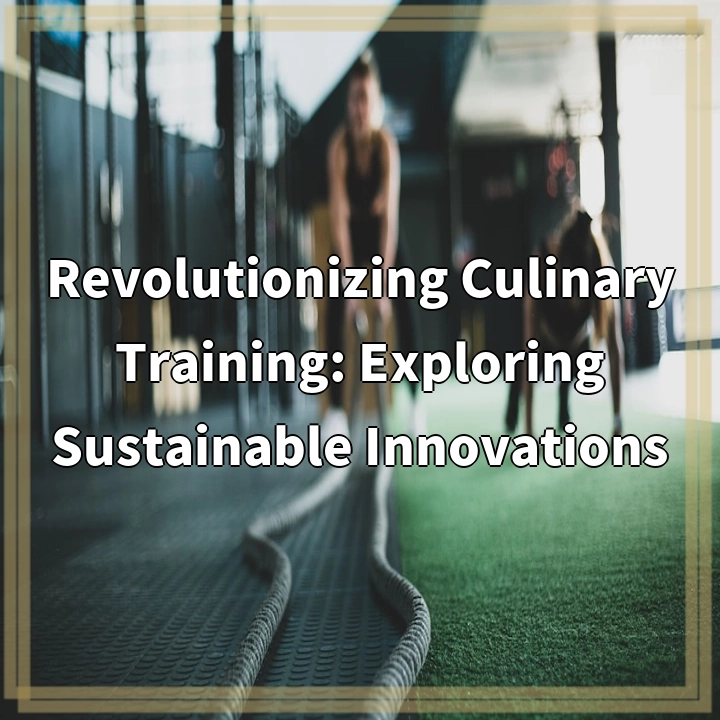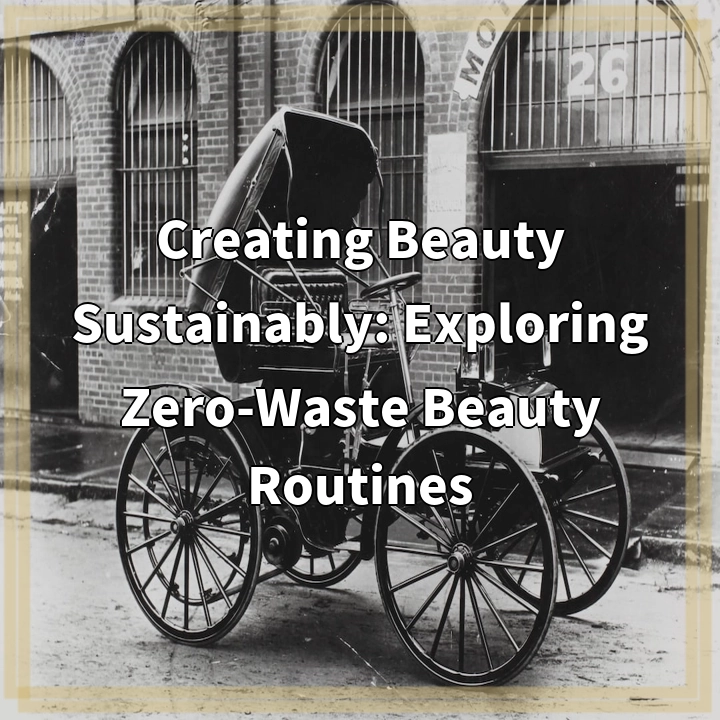
What it is:
Revolutionizing Culinary Training: Exploring Sustainable Innovations
In recent years, culinary training programs have been embracing sustainable innovations to address the environmental challenges associated with the culinary industry. These innovations aim to reduce food waste, minimize energy usage, and promote responsible sourcing of ingredients. By introducing sustainable practices into culinary education, future chefs are equipped with the knowledge and skills to create a more sustainable and eco-friendly culinary landscape.
Real-World Problems:
Despite the growing awareness and adoption of sustainable practices in culinary training programs, several real-world problems continue to persist. These challenges pose barriers to the widespread implementation of sustainable innovations and hinder the progress towards a more sustainable culinary industry. Some of the key problems include:
1. Limited Awareness and Training:
Many culinary schools and training programs struggle to provide comprehensive education on sustainable practices. The lack of awareness and training limits the ability of future chefs to understand and implement sustainable strategies in their culinary careers.
2. Cost Constraints:
Implementing sustainable innovations often requires financial investments. For culinary schools, funding can be a significant barrier to adopting green technologies, implementing waste reduction initiatives, and sourcing sustainable ingredients. The high initial costs associated with these innovations can deter institutions from pursuing sustainable practices.
3. Resistance to Change:
Resistance to change is a common challenge faced when introducing new practices in any industry, including culinary training. Traditional culinary techniques and methods may be deeply ingrained in the curriculum and culture of culinary schools, making it challenging to incorporate sustainability into existing programs. The resistance to change from instructors, students, or industry professionals can hinder the integration of sustainable innovations.
4. Limited Access to Sustainable Ingredients:
Sourcing sustainable and locally produced ingredients can pose logistical challenges for culinary schools. Limited availability, higher costs, and variability in quality can make it difficult to consistently incorporate sustainable ingredients into culinary training programs.
Addressing these real-world problems is crucial in achieving truly sustainable culinary training programs. Overcoming these barriers requires collaboration between culinary institutions, industry partners, and policymakers to create supportive frameworks, improve access to funding, and foster a culture of sustainability within the culinary field.

Solutions to Real-World Problems:
Revolutionizing Culinary Training: Exploring Sustainable Innovations
1. Increasing Awareness and Training:
To address the limited awareness and training on sustainable practices, culinary schools should prioritize incorporating sustainability into their curriculum. This can include dedicated courses or modules that focus on sustainable cooking techniques, waste reduction strategies, and responsible ingredient sourcing. Additionally, partnerships with sustainability organizations and industry experts can provide valuable knowledge and resources to enhance culinary education in this area.
2. Seeking Funding Opportunities:
Culinary schools can explore various funding opportunities to support the implementation of sustainable innovations. Grants, sponsorships, and partnerships with sustainability-focused organizations or corporations can provide financial assistance to invest in energy-efficient appliances, implement waste management systems, and support the integration of sustainable practices. Raising awareness about the long-term cost savings associated with sustainable practices can also help garner support and funding.
3. Fostering a Culture of Sustainability:
To overcome resistance to change, it is essential to foster a culture of sustainability within culinary training programs. This can be achieved by engaging and educating both instructors and students about the benefits of sustainable practices. Offering incentives, such as certifications or recognition for implementing sustainable actions, can motivate individuals to embrace and support sustainable innovations. Collaborating with industry professionals and alumni who have successfully adopted sustainable practices can also inspire and encourage widespread acceptance of sustainability in culinary education.
4. Establishing Relationships with Sustainable Suppliers:
Culinary schools can establish relationships with local farmers, suppliers, and producers who prioritize sustainable and environmentally friendly practices. This ensures consistent access to sustainable ingredients and promotes responsible sourcing. Creating partnerships with these suppliers can also provide unique learning opportunities for students, such as farm visits, to understand the importance of sustainable food production first-hand.
By implementing these solutions, culinary training programs can overcome the real-world problems associated with revolutionizing culinary training through sustainable innovations. Embracing sustainability will not only equip future chefs with the necessary skills to contribute to a more eco-friendly culinary industry but also help create positive environmental and social change in the broader food system.















